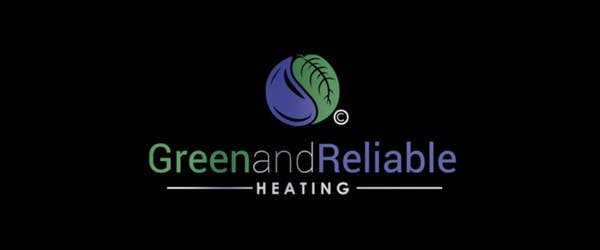A well-functioning heating system keeps your home warm, efficient, and safe throughout the year. Many homeowners schedule annual boiler services in York, Richmond, and Harrogate to maintain reliability, but if you’re wondering whether you can combine this with a full heating inspection, the answer is yes, and it’s often the smarter, more cost-effective choice. Combining both ensures every part of your system is working in harmony, from your boiler to your radiators and pipework.

Combining Boiler Servicing With a Full Heating Inspection
Combining a boiler service with a heating inspection gives you a complete picture of your system’s performance. Rather than checking just one component, your engineer can assess the entire setup, ensuring that the heat output, circulation, and controls are all functioning correctly. This approach helps spot inefficiencies that might otherwise go unnoticed, such as uneven radiator heat, low pressure, or worn system components.
What Happens During a Boiler Service
Inspecting the Internal Components
The engineer will begin by carefully examining the internal parts of the boiler, including the heat exchanger, fan, ignition system, seals, and wiring. This inspection helps identify early signs of wear, corrosion, or damage that could lead to future breakdowns. Spotting these issues early prevents costly repairs and ensures your boiler continues to run smoothly.
Cleaning Key Parts
Over time, soot, dust, and debris can build up inside the boiler, reducing efficiency. The engineer will clean vital components such as the heat exchanger, burner, and condensate trap to ensure heat is transferred effectively and the system operates at peak performance. Regular cleaning also helps reduce strain on parts, extending the life of your boiler.
Testing the Flue
The flue is responsible for safely expelling gases produced during combustion. During the service, the engineer will check that the flue is securely fitted, free from obstructions, and venting gases correctly. They may also use a flue gas analyser to measure the combustion efficiency and confirm that no harmful emissions, like carbon monoxide, are leaking into your home.
Checking Gas Pressure and Ventilation
Accurate gas pressure and proper ventilation are essential for safe and efficient boiler operation. The engineer will measure the gas pressure to ensure it meets manufacturer specifications and test airflow to confirm the boiler is receiving enough oxygen for complete combustion. Poor ventilation or incorrect pressure can cause performance issues or even safety risks, so this step is critical.
Verifying Safety Standards
Finally, the engineer will carry out safety checks to ensure your boiler complies with current regulations and operates safely. This includes testing safety devices like pressure relief valves and thermostats, as well as reviewing the system’s overall performance. Once complete, they’ll provide a service report outlining what was checked, cleaned, and any recommendations for future maintenance.
What a Full Heating Inspection Covers
Radiators and Heat Distribution
The engineer will check all radiators to ensure they’re heating evenly and reaching the right temperature. Cold spots or areas that take longer to warm up can indicate trapped air, sludge build-up, or poor circulation. If needed, they may recommend bleeding or flushing the system to restore balanced heat distribution across your home.
Thermostatic Controls and System Settings
Your thermostat and heating controls play a key role in maintaining comfort and efficiency. During the inspection, the engineer will test the accuracy of your thermostat and ensure it’s communicating correctly with the boiler. They’ll also check any smart or programmable systems to make sure your heating schedules are set optimally, helping you save energy without sacrificing warmth.
Pumps and Valves
The circulation pump is responsible for moving hot water through your heating system. The engineer will inspect it for signs of wear, noise, or inefficiency. They’ll also check motorised valves, zone valves, and manual controls to confirm that hot water is being properly directed to where it’s needed. Faulty pumps or valves can lead to uneven heating and unnecessary energy use.
Pipework and Connections
All visible pipework and joints will be checked for leaks, corrosion, or insulation issues. Older systems, in particular, can suffer from rust or mineral build-up that restricts water flow. Ensuring that your pipework is in good condition helps maintain pressure and keeps your boiler running efficiently.
Detecting Corrosion and Early Leaks
Even small leaks can have big consequences if left unchecked. During the inspection, the engineer will look for damp patches, rust, or signs of water damage around radiators, valves, and pipe joints. Identifying and repairing these early can prevent system pressure loss and extend the lifespan of your heating system.
Why It’s Worth Combining Both
Combining both services saves you time and money. It means only one engineer visit, fewer disruptions, and a single comprehensive health check for your system. More importantly, you’ll enjoy improved heating performance, better energy efficiency, and reduced risk of future faults. It’s an investment that pays off in comfort, safety, and long-term reliability.
Trusted Boiler Service and Heating Inspection in York, Richmond, and Harrogate
Looking to book a boiler service and full heating inspection together? Green and Reliable Heating offers professional, Gas Safe registered engineers who can handle both in a single visit. Call us today on 0800 118 2467 or 07717 574470, or fill out our contact form to schedule your combined service and keep your home running efficiently all year round.


